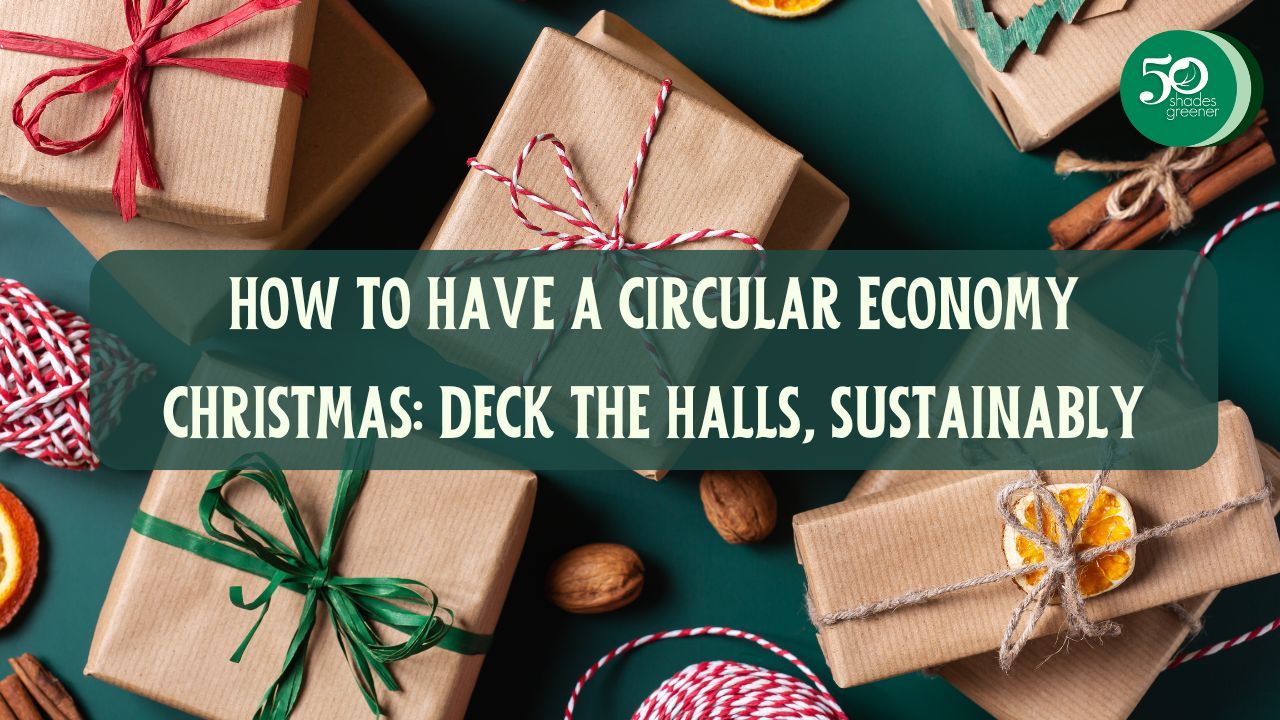TL;DR
Education for Sustainable Development (ESD) equips learners with knowledge, skills, and values to address climate and social challenges
ESD is essential for achieving the 2030 Sustainable Development Goals, especially SDG 4 (Quality Education)
Despite its importance, ESD is no
...
When you think about Christmas, what comes to mind? Cosy gatherings, heaps of delicious food, sparkly decorations... and, unfortunately, a mountain of waste. From gift wraps that get tossed within seconds to decorations we barely reuse, the festive season can be one of the most wasteful times of the...
What Exactly is Embodied Carbon and Why Should You Care?
Embodied carbon is the sneaky villain hiding in your hotel’s interior design, lurking in the walls, the furniture, the flooring, and even those beautiful new bathtubs you’ve just installed. Unlike operational carbon, which comes from the ener...
As the festive season approaches, it’s time to pack our bags, map our routes, and get excited about those well-deserved escapes.
It is also a great opportunity to be mindful of our environmental impact. So, before we jet off, let’s add a sprinkle of eco-consciousness to our travel plans! Travel, es...
Let’s face it: running a business is no small feat. Between keeping the lights on and the coffee brewing, those utility bills can add up. But here’s the thing, you don’t have to work harder to save money; you just have to work smarter. For companies striving to be both cost-effective and environment...
Nobody knows the struggling state of the natural world better than today’s younger generations. Since the industrial revolution, the scale and intensity of human impact on the global climate has been increasing exponentially. But I am not here to go on and on about how we (and I mean a collective, s...
As the Climate Crisis deepens, the financial sector will play a key role.
Without the financial sector's support, it's becoming increasingly challenging to elevate global awareness about environmental issues. After all, money not only talks—it propels action.
Investment is crucial to projects and ...
ESG has quickly become the latest buzz-acronym in sustainability circles—and let’s be honest, the corporate world loves a good acronym. But while ESG is gathering all the headlines, how many of us really know what hides behind a few letters? To put it simply, they stand for Environmental, Social, an...
The way you communicate your green initiatives to your customers and stakeholders plays a huge part on spreading sustainability, and more importantly, in creating real impact and change of mindsets.
Take, for instance, my recent stay at a 4-star hotel. In the bathroom they had a little card telling...
The other day, I encountered an advertisement for Mout Cider on television. The add simply highlighted three compelling aspects: a fully recyclable glass bottle, the cider’s vegan status, and the company’s partnership with World Wildlife Fund that protects endangered species. While lounging at home,...
The Corporate Sustainability Reporting Directive (CSRD) is a new piece of EU regulation that requires companies to audit and report on their Environmental, Social and Governmental (ESG) activities and initiatives.
CSRD applies to all businesses within the European Union, including subsidiaries of f...
Are you interested in sustainable hospitality? Are you bored and looking for a blog to read? Do you enjoy a sassy tone while getting somewhat informed? Then read on, you’re in the right place!
Hospitality And Sustainability
As we approach World Nature Conservation Day, it’s worth discussing some o...













